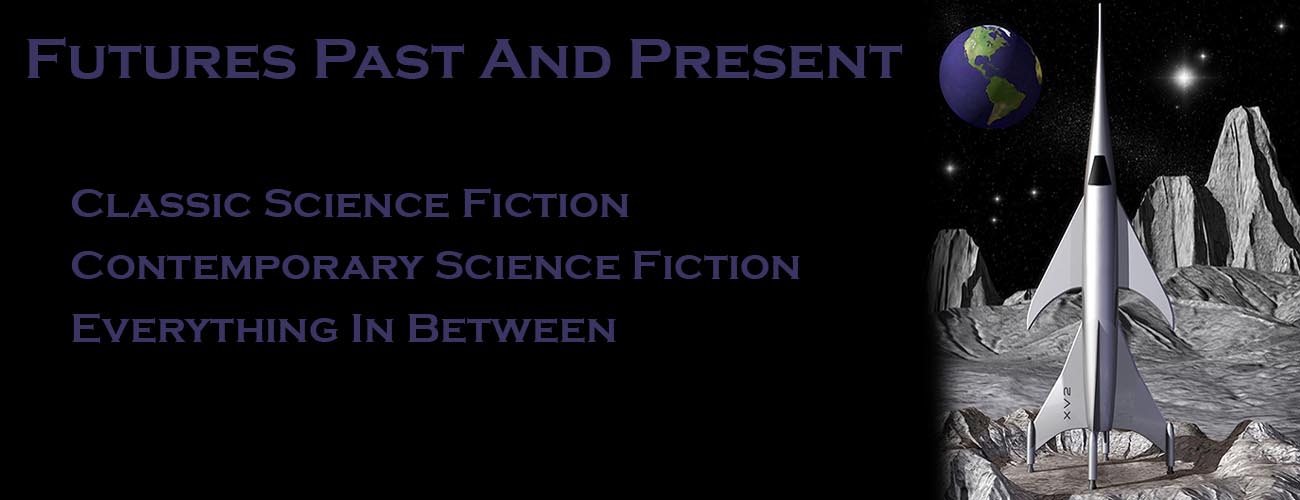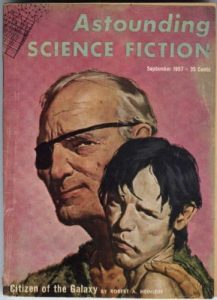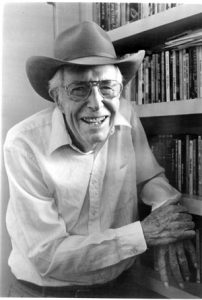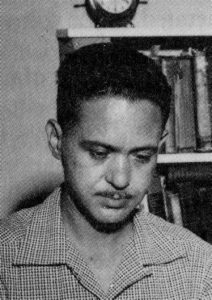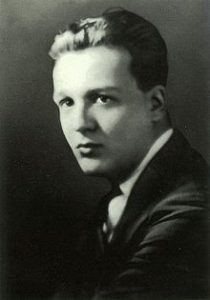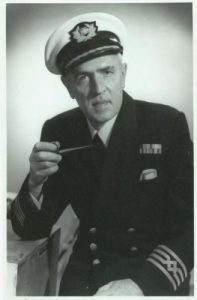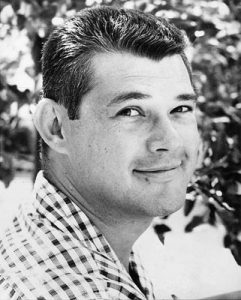
Chad Oliver, summer of 1959
Yesterday, March 30, was the birthday of Chad Oliver (1928-1993). I got my wires crossed and thought it was today. Oliver wrote anthropological science fiction. Not surprising, really, considering he was a professional anthropologist, spending most of his career at the University of Texas. Howard Waldrop once said something to the effect that most of the science fiction writers in Texas got together when he and Chad met for a beer. That was in the early 90s, and I don’t remember his exact words Howard was referring to years prior to when he made the statement, too.
I had the privilege of meeting him at least once, at an Armadillocon a year or two before his death. He was friendly and outgoing, and I looked forward to getting to know him at future conventions. And then he passed away. Fortunately his writing has lived on.
Oliver started his writing career while in graduate school in California. It was there he fell in with the likes of Ray Bradbury, Richard Matheson, William F. Nolan, Charles Beaumont, and others of what became known as the California School. While not a major figure in that group, he is considered one of them by association, although his writing moved in a different direction from theirs.Ma
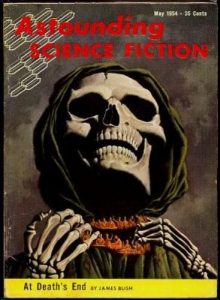 I read several of Chad’s short stories earlier this evening for this post, but the one I want to focus on is “Of Course”, from the May 1954 issue of Astounding. (Yes, another combined birthday/90th Anniversary post.)
I read several of Chad’s short stories earlier this evening for this post, but the one I want to focus on is “Of Course”, from the May 1954 issue of Astounding. (Yes, another combined birthday/90th Anniversary post.)
This is a short, punchy story with a nice twist. A large cigar shaped spacecraft appears over Earth and tells every government that they will choose one representative of the most advanced civilization to take back with them to study. They’ll bring him back in a hundred years, and in the meantime that representative’s civilization will get one thing they want to make their lives easier.
All the major nations, such as the US, the USSR (remember, this was written in the 50s at the height of the Cold War), and others are sure it will be them but are afraid it will be one of their enemies. You can probably guess it’s not them. Nor is it their enemies.
I won’t say who the person the aliens chose represents. It won’t matter, anyway, once you read the last page of the story and find out what the aliens are really up to. Poor humans, they never had a chance. 🙂
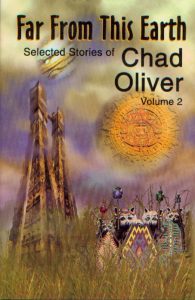 The volume I perused tonight was Far From This Earth, Selected Stories of Chad Oliver Volume 2. NESFA Press published two volumes of Chad’s stories, plus an omnibus of novels about fifteen years ago. Fortunately, they are available in electronic editions for only three bucks.
The volume I perused tonight was Far From This Earth, Selected Stories of Chad Oliver Volume 2. NESFA Press published two volumes of Chad’s stories, plus an omnibus of novels about fifteen years ago. Fortunately, they are available in electronic editions for only three bucks.
The last story in the book was “A Lake of Summer”. It was a tribute to his friend Ray Bradbury, a gentle fantasy that was very much a Bradbury kind of story. It was originally published in The Bradbury Chronicles: Stories in Honor of Ray Bradbury back in 1991, making it the last story Chad published before he died.
If you’ve not read Chad, give him a try. His work is full of warmth and humor, and there really isn’t anyone writing like him today that I’m aware of.
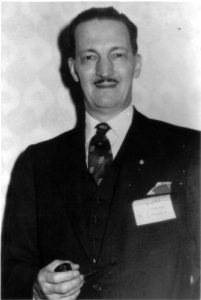 Today, March 23, marks the birth of H. Beam Piper (1904-1964). I’ve been a fan of Piper’s since I read his future history stories, of which the Fuzzy novels are a part, when I was in high school, way back in [REDACTED].
Today, March 23, marks the birth of H. Beam Piper (1904-1964). I’ve been a fan of Piper’s since I read his future history stories, of which the Fuzzy novels are a part, when I was in high school, way back in [REDACTED].